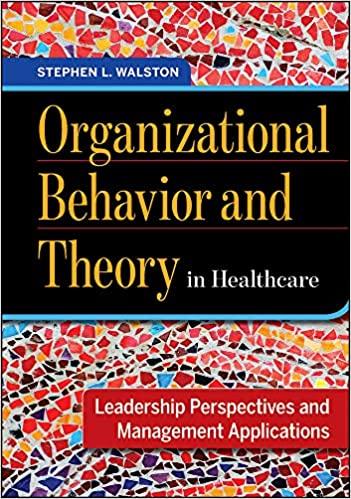How could the delegation have been more clearly defined? It can be said that if the CEO
Question:
How could the delegation have been more clearly defined?
It can be said that if the CEO must make all the decisions, then no one makes decisions. At one organization, it had been the previous CEO’s custom to analyze and critique every decision. Rather than support important decisions made by his subordinates, the CEO insisted that proposals were to be submitted, reviewed, modified, and authorized only by him.
The benefit of this practice was that the CEO owned each decision.
The problem was that members of the executive team refrained from making decisions themselves.
This state of affairs was challenged when a talented vice president (VP) needed to upgrade the Gamma Knife equipment in the imaging department. The department could either upgrade the existing equipment for a nominal expense or replace it at a significant cost. Both options had benefits, including increased capability and improved operational performance.
The intricacies of the decision required insights and opinions at the operational level, well outside the expertise of the CEO.
The VP presented the issues and awaited the CEO’s decision. His response? “It’s your call. I will support your decision.”
This unexpected answer called for a new process. Returning to his office, the VP struggled to make the decision—upgrade or replace—
because he assumed that eventually the CEO would tell him what to do.
Regrettably, he could not accept that he owned the decision.
The VP forwarded several additional reports to the CEO and awaited a written directive. The decision about the Gamma Knife languished for months. Finally, the VP returned to the CEO’s office to request that a decision be made. The CEO, attending to other issues, looked up and said, “I thought we already made that decision.”
Step by Step Answer:

Organizational Behavior And Theory In Healthcare Leadership Perspectives And Management Applications
ISBN: 9781567938418
1st Edition
Authors: Stephen Walston





